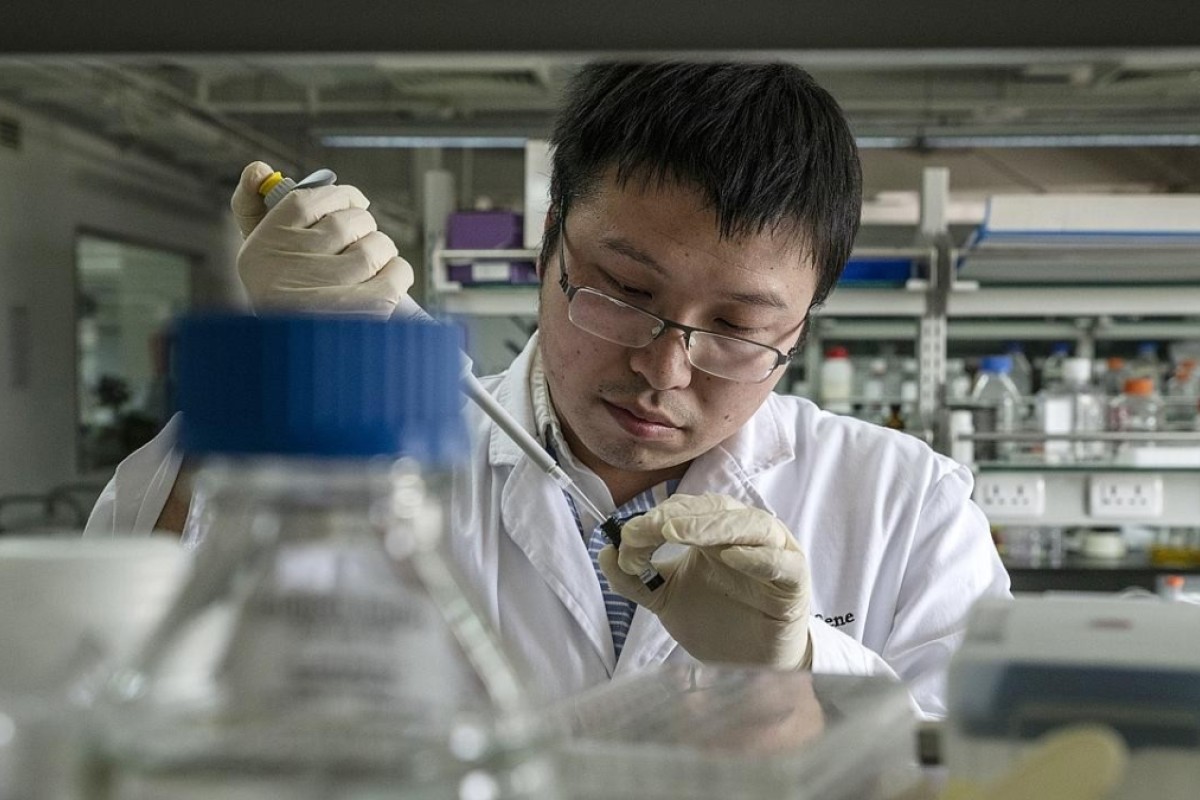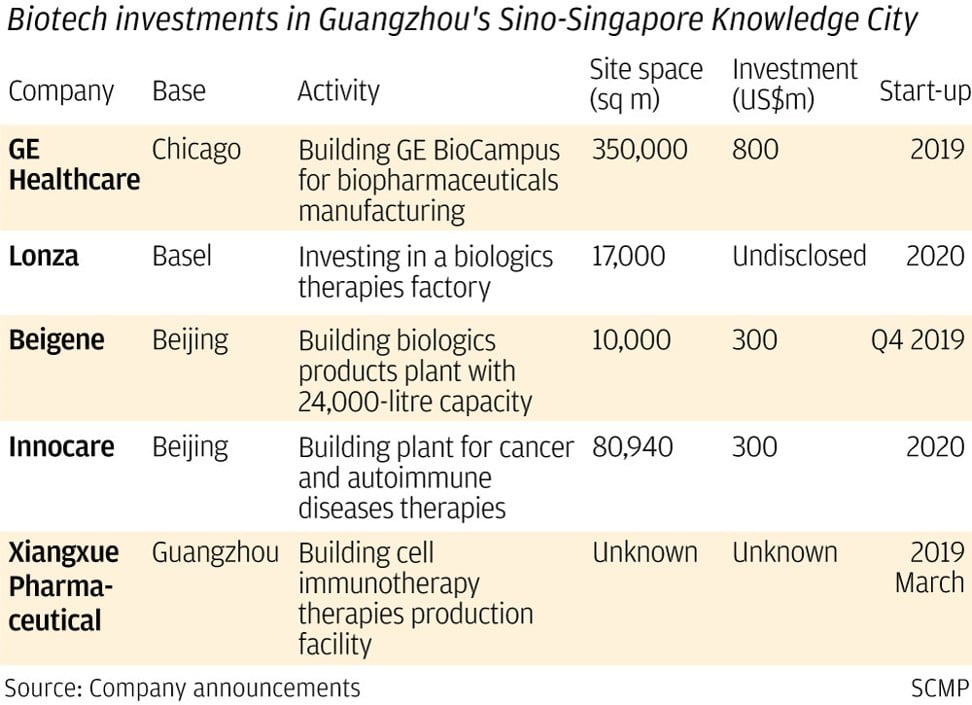From 1978 to 2017, the number of people living under the poverty line in rural China decreased by 740 million. The incidence of rural poverty fell by 94.4 percentage points. It is a stunning contribution to the global fight against poverty. China, however, is not yet satisfied with this result.
China’s Guangdong Province, a long-time trailblazer over the decades of reform and opening-up, plays an important role in the search for an answer to change the service industry and benefit the people. Currently, the answer is technology.
For years, Guangdong has been exploring a new way to develop itself into a technological haven. Nansha Area, one of three new areas in the Guangdong Pilot Free Trade Zone (FTZ), shoulders part the responsibility of propelling innovation through technology.
By shifting its focus onto “IAB”, namely Information Technology, Artificial Intelligence and Biopharmaceuticals, Nansha New Area, the sixth state-level New Area in China of its kind, rose in response. It has developed into a new harbor for entrepreneurs in pursuit of notable achievements in technological industries, such as AI and e-commerce.
Administrative simplification for hi-tech companies
“The facilitation of strategical emerging industries is a major feature of Nansha Area. The AI industry, especially, is the core of a new round of technological innovation. AI technology penetrates through the advanced manufacturing industry, modern service industry and the construction of smart cities,” said Mao Yanhua, Vice Dean of Sun Yat-sen University’s Institute for FTZ Research.
In recent years, one of the only words that we hear time and time again when it comes to cars is "electric", indicating a relatively slow development in the car industry, especially when it covers a timespan of over 150 years. Its infusion with AI technology, however, might change the game.
“We say, ‘self-driving car projects are the mother of all AI projects,’” said Dai Xiaoming, an employee of the Strategic Development Department of Pony.ai, a self-driving car unicorn company with offices in China and Silicon Valley.
The phrase he quoted was once said by Tim Cook, the CEO of Apple, on the future dominance of the autonomous car industry.
Entrepreneurs aren't the only ones who see a future in AI, so too does the government. In Oct. 2017, Nansha Development Zone sealed a deal with Pony.ai to reach an agreement to locate the company headquarter in the Nansha Area for further research and development.
Talking about the support from the local authorities, Cao Tiantian, Business Development Director of Pony.ai said, “We’ve received lots of support from the local government. We would often report to the government in advance, asking for a specific area in the city to test our product.”
She added that the only way to make AI even smarter is to retrieve valid data from real road tests, and Nansha Area plays an essential role in making that happen.
An official experimental instruction for the road test of autonomous-vehicles released by Nansha Area earlier this year prioritizes the idea “Be propelled by innovation, be the first to carry and try.”
It only takes 15 days for a self-driving car company to receive a governmental reply granting permission for a real road trial.
Aiming to become the world’s best autonomous car company, Pony.ai pays particular attention to employing more adroit talents in the industry. “The basic rule to compete in this industry is to attract as many talented people as you can,” said Dai.
Adding to this, Cao mentioned that there are collaborations among local authorities to cater to their needs. “The FTZ offers us huge support when it comes to employee settlement, tax preference and talent attraction. Most importantly, it takes much less time for an employee to settle down because of the simplification of the administrative procedure.”
Technological advantages make a smarter customs system
The past 40 years have witnessed a soaring change in per capita disposable income of Chinese citizens, from an average of 171 yuan (24.8 U.S. dollars) to 25,974 yuan (3768.4 U.S. dollars). The growing desire for high-quality products acts as a stimulus to the market that eventually incubates high-end e-commerce companies such as VIPSHOP (China), one of the leading B2C online retailers in China.
As an e-commerce company born and raised locally, VIPSHOP couldn’t be a better embodiment of the advancement of its mother town.
“Since the trial of cross-border e-commerce business started, VIPSHOP’s cross-border business has generated a revenue of over 8.24 billion yuan (1.2 billion U.S. dollars) as well as 1.1 billion (159 million U.S. dollars) in tax in the year of 2017,” said Peng Xinguo, Senior Warehouse Manager of VIPSHOP’s warehouse located near the Nansha harbor.
None of these achievements could’ve been made without the help of technology, especially the GQTS, aka the Global Quality Traceability System.
The Global Quality Traceability System, according to Yangcheng Evening News, is the world’s first quality inspection system which ensures the customers have complete knowledge about their imported products.
“It’s urgent for Guangzhou Harbor, which is now the fifth largest harbor in the world, to necessitate the smart custom clearance system,” said professor Mao.“The GQTS remains a pivotal part in the development of cross-border e-commerce through its advanced quality inspection system,” he added.
According to International Business Daily, by 2017, over 44 million tracing codes had been issued for products worth over 50.4 billion U.S. dollars.
Taking advantage of technological innovations and applying them to the construction of “smart harbors”, according to professor Mao, is a method that could be applied to other harbors in China along the 21st Century Maritime Silk Road under the Belt and Road Initiative.
By He Zhuoyan (People's Daily Online)



